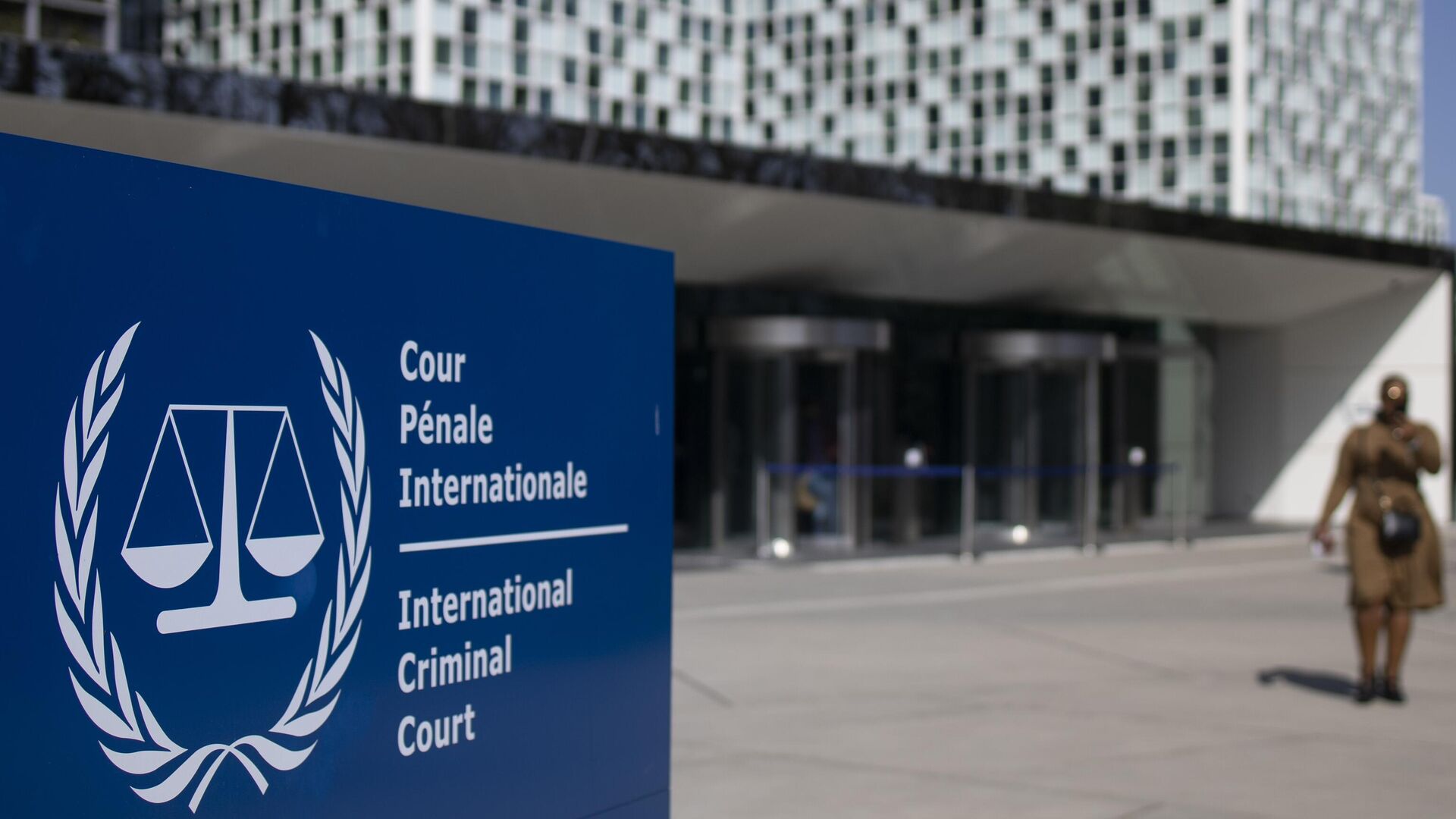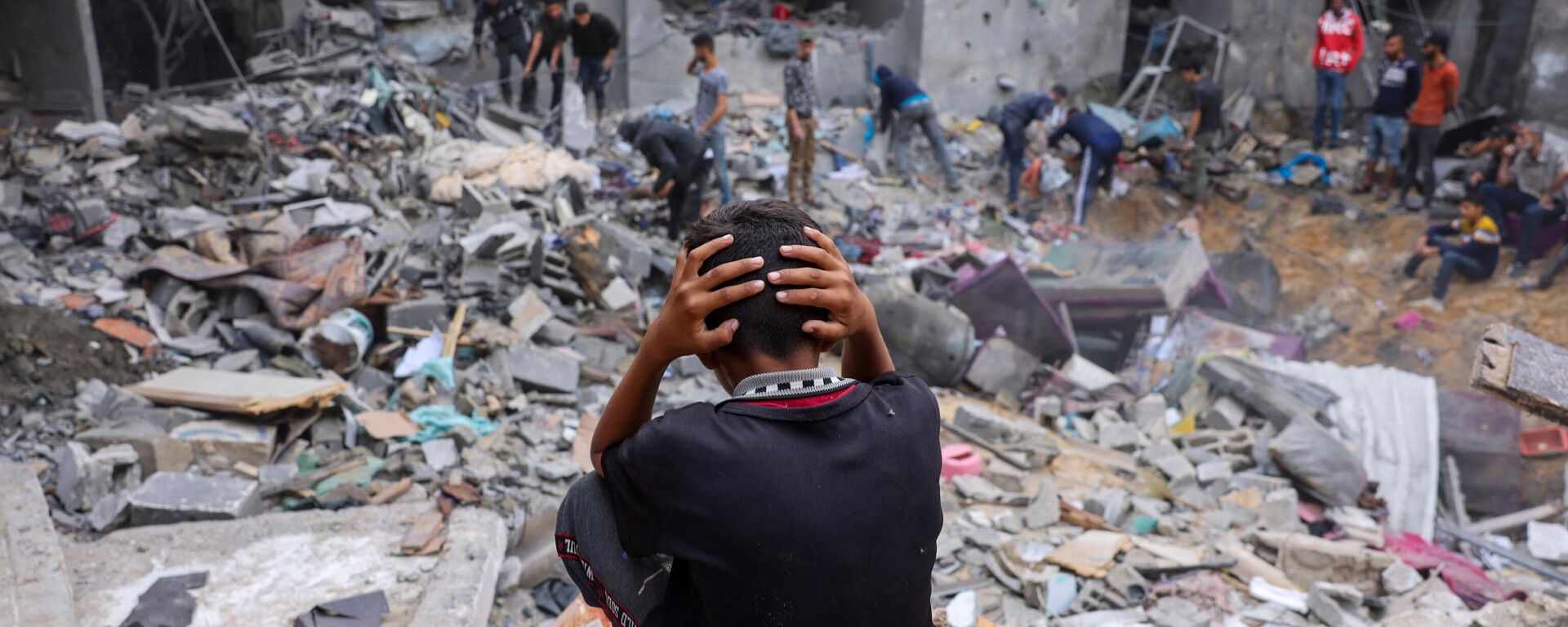https://sputniknews.in/20241117/power-politics--lobbying-culture-undermining-credibility-of-world-organisations-8404560.html
Power Politics & Lobbying Culture Undermining Credibility of World Organisations
Power Politics & Lobbying Culture Undermining Credibility of World Organisations
Sputnik India
Global institutions like the United Nations (UN), the International Court of Justice (ICJ), the International Criminal Court (ICC) are losing credibility and effectiveness due to politics and pointless statements, weakening conflict resolution efforts, experts say.
2024-11-17T18:08+0530
2024-11-17T18:08+0530
2024-11-17T18:08+0530
sputnik opinion
middle east
us
israel
the united nations (un)
shanghai cooperation organisation (sco)
international cricket council (icc)
https://cdn1.img.sputniknews.in/img/07e7/08/03/3383957_0:160:3072:1888_1920x0_80_0_0_0c52994b88eb17ea0df8a415dd1e1dee.jpg
The UN, ICJ and ICC have failed to turn words into actions for peaceful conflict resolution, the experts said.A permanent solution to conflicts around the world is needed, Dr Mehmood Ul Hassan Khan, an Executive Director at the Center for South Asia & International Studies (CSAIS) told Sputnik. "The brutal actions of Israel in Palestine, Lebanon, and Syria" mirror the Roman Empire’s approach toward its vulnerable populations, he argued."Innocent and unarmed civilian in these countries face relentless state-sponsored terrorism, leading to widespread destruction, human rights abuses, and the indiscriminate killing of women, the elderly, and infants," he added.US foreign policy seems insincere about promoting peace and stability, especially in the Middle East, Afghanistan and Indo-Pakistani conflict, the pundit highlighted. Washington often exploits those troubles to bolster its hegemonic status and protect its national interests, reflecting a Cold War mentality to foster the bloc system, impose unilateral sanctions and promote protectionism.By contract, BRICS and the Shanghai Cooperation Organisation (SCO) are poised to become rising stars of mutual cooperation among developing and underdeveloped countries. This will enhance the positive roles in global governance and a law-based global order in the future, he suggested.The history of international organisations shows that the old ones are often replaced by new ones, Dr Rishi Gupta an Assistant director at the Asia Society Policy Institute cited.He noted that the League of Nations was ineffective in preventing World War II, and therefore, to prevent a third one, the UN emerged. If the UN continues to resist the demand for reforms, a new system may replace its relevance, if not the organisations in their entirety, he told Sputnik."With the current global order blooming with more power centres like India, Australia, Brazil, and others, it’s high time that these global platforms become more inclusive and accommodating to remain effective — reforms are a must," he added. "If not, global lobbies and a few countries will rise to resolve conflicts around the world."The question is not why the US or any other power can influence such platforms, but whether emerging powers are collectively supporting each other for the common good to reform platforms like the UN, Gupta said.Nothing changes on the ground until the new power centres convince the world that they can be effective and influential enough to counter any dominance, he said.
https://sputniknews.in/20231114/us-failing-to-handle-israel-hamas-crisis-seymour-hersh-5391835.html
middle east
us
israel
Sputnik India
feedback.hindi@sputniknews.com
+74956456601
MIA „Rossiya Segodnya“
2024
Muhammad Sharif
https://cdn1.img.sputniknews.in/img/07e7/0b/05/5257054_0:0:443:444_100x100_80_0_0_b8bd2af32be62a6eecdb4a84c7fd978f.jpg
Muhammad Sharif
https://cdn1.img.sputniknews.in/img/07e7/0b/05/5257054_0:0:443:444_100x100_80_0_0_b8bd2af32be62a6eecdb4a84c7fd978f.jpg
News
en_IN
Sputnik India
feedback.hindi@sputniknews.com
+74956456601
MIA „Rossiya Segodnya“
Sputnik India
feedback.hindi@sputniknews.com
+74956456601
MIA „Rossiya Segodnya“
Muhammad Sharif
https://cdn1.img.sputniknews.in/img/07e7/0b/05/5257054_0:0:443:444_100x100_80_0_0_b8bd2af32be62a6eecdb4a84c7fd978f.jpg
un, icj. icc
Power Politics & Lobbying Culture Undermining Credibility of World Organisations
Global institutions like the United Nations (UN), the International Court of Justice (ICJ), the International Criminal Court (ICC) are losing credibility and effectiveness due to politics and pointless statements, weakening conflict resolution efforts, experts say.
The UN, ICJ and ICC have failed to turn words into actions for peaceful conflict resolution, the experts said.
A permanent solution to conflicts around the world is needed, Dr Mehmood Ul Hassan Khan, an Executive Director at the Center for South Asia & International Studies (CSAIS) told Sputnik.
"The ongoing destruction in the Middle East exemplifies the structural flaws, ineffectiveness, and moral corruption of these organisations, fuelling anger, despair, and discrimination against weaker states," Khan said.
"The brutal actions of
Israel in Palestine, Lebanon, and Syria" mirror the Roman Empire’s approach toward its vulnerable populations, he argued.
"It appears that these international organisations have become facilitators of global lawlessness, promoting the spirit of 'might makes right' and sabotaging the principles of an equitable world order, economic globalisation, and international cooperation," Khan charged.
"Innocent and unarmed civilian in these countries face relentless state-sponsored terrorism, leading to widespread destruction, human rights abuses, and the indiscriminate killing of women, the elderly, and infants," he added.
US foreign policy seems insincere about promoting peace and stability, especially in the Middle East, Afghanistan and Indo-Pakistani conflict, the pundit highlighted. Washington often exploits those troubles to bolster its hegemonic status and protect its national interests, reflecting a Cold War mentality to foster the bloc system, impose unilateral sanctions and promote protectionism.
"Its biased foreign policies promote regional instabilities and global uncertainties, pushing the world toward chaos and stalemates," Khan warned. "Only the selected vested interests of the West, especially the US and its allies, would be protected."
By contract,
BRICS and the Shanghai Cooperation Organisation (SCO) are poised to become rising stars of mutual cooperation among developing and underdeveloped countries. This will enhance the positive roles in global governance and a law-based global order in the future, he suggested.
The history of international organisations shows that the old ones are often replaced by new ones, Dr Rishi Gupta an Assistant director at the Asia Society Policy Institute cited.
He noted that the League of Nations was ineffective in preventing World War II, and therefore, to prevent a third one, the UN emerged. If the UN continues to resist the demand for reforms, a new system may replace its relevance, if not the organisations in their entirety, he told Sputnik.
"Multilateralism has its downsides, often influenced by a few key countries. It is the powerful five that drive the narrative and support what suits them best." Gupta said.
"With the current global order blooming with more power centres like India, Australia, Brazil, and others, it’s high time that these global platforms become more inclusive and accommodating to remain effective — reforms are a must," he added. "If not, global lobbies and a few countries will rise to resolve conflicts around the world."
The question is not why the US or any other power can influence such platforms, but whether emerging powers are collectively supporting each other for the common good to reform platforms like the UN, Gupta said.
Nothing changes on the ground until the
new power centres convince the world that they can be effective and influential enough to counter any dominance, he said.



